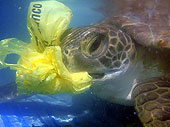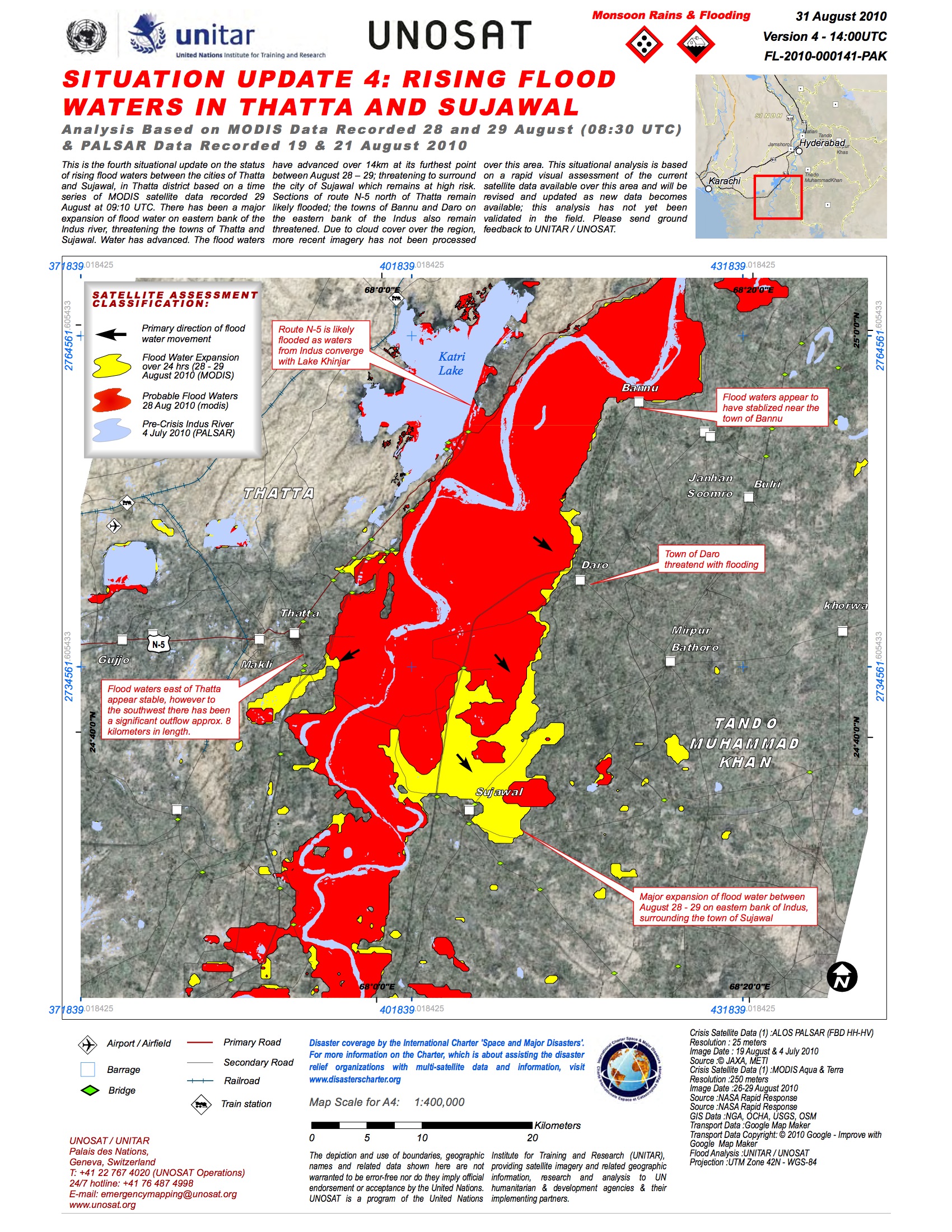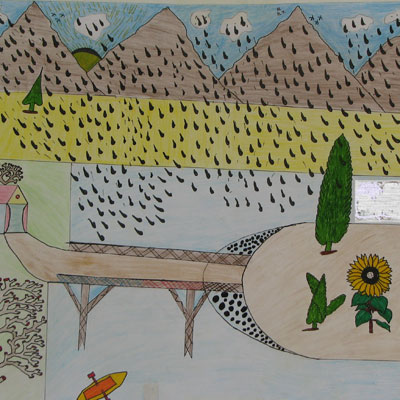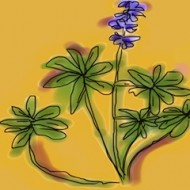Sherman’s “little friend”
Posted on | September 2, 2010 | 3 Comments
 When Las Vegas Review-Journal publisher Sherman Frederick assured his own readers yesterday that anyone who posts an article from his newspaper without securing copyright permission “will meet my little friend called Righthaven,” he sounded like a thug, which he clearly intended and enjoyed, but mostly he came off like the kind of fool that has so successfully reduced Las Vegas to one of the most depressed and depressing places in America.
When Las Vegas Review-Journal publisher Sherman Frederick assured his own readers yesterday that anyone who posts an article from his newspaper without securing copyright permission “will meet my little friend called Righthaven,” he sounded like a thug, which he clearly intended and enjoyed, but mostly he came off like the kind of fool that has so successfully reduced Las Vegas to one of the most depressed and depressing places in America.
Frederick argued that by using Righthaven, a company suing an ever-expanding array of non-profits, internet bulletin boards and even a local PR firm for unpermitted reproduction of R-J content, he is saving newspapers in an age of rampant internet pilfering.
With saviors like that, who needs a wrecking ball? As held earlier on this site, what Frederick really is doing is rendering R-J content worthless. For a perfect example of how, turn to the paper’s arch rival, the Las Vegas Sun, which yesterday reported that on Tuesday Righthaven “sued Kirvin Doak Communications, a longtime source of news and advertising revenue for the Review-Journal.”
According to the Sun, Frederick is suing Kirvin Doak Communications for reprinting a story made possible in part by information supplied by the PR.
The hot content involved a Celine Dion concert. Frederick’s litigiousness might be funny if it only punished promoters of ear-splitting singers, however, almost from the start of the suing spree, it has corrupted every corner of his newsroom. Last spring, for example, when Righthaven filed suit against the Progressive Leadership Alliance of Nevada for posting articles on its internet bulletin board, in one fell swoop Frederick discredited all the R-J reporting on the desert city’s water policy.
Why? PLAN represents the conservation community of Southern Nevada. You can’t contact an organization for comment, then sue it for posting the article containing its own comment, then expect its members or allies to talk to your reporter again, or for anyone to trust what you print. You can, however, politely contact the organization and ask them not to post the entire article on their web site, but to link to your website and keep it civil while retaining public trust. As it is, Frederick has done nothing but add fuel to the idea that he is using his newspaper to destroy the conservation movement.
No observer is more delighted by Frederick’s war on his reporters’ own sources than the Las Vegas Sun, which has been doing a dandy job reporting Frederick’s march to the sea through his own newsroom. This being Las Vegas, however, even this grudge match is gamed. A joint operating agreement means that the libertarian R-J and the solidly Democratic-leaning Sun are distributed bound-up together. You can’t get one without the other.
None of this bodes well for newspapers or a profoundly depressed Las Vegas. Soon the only thing selling in Southern Nevada may be moving vans. Note to U-Haul: Whatever you do, don’t post any R-J stories mentioning the rate of people fleeing.
*Hat tip to ABM for alerting me to Frederick’s post. This post has been updated. The headline has been changed.
Let them eat plastic
Posted on | September 1, 2010 | No Comments

It only looks like a jelly fish. A sea turtle eats a plastic bag. Source: Heal the Bay. Click on the image to be taken to Heal the Bay.
A “closely watched, first-in-the-nation ban on plastic grocery bags was defeated Tuesday night,” reports the Los Angeles Times. “That measure, AB 1998, passed the Assembly in June and had the support of Gov. Arnold Schwarzenegger, but faced a withering and well-financed advertising and lobbying campaign from the plastic bag manufacturing industry.” To keep reading, click here or, for the AP account, here. “Opposition arguments last night were straight out of Lewis Carroll,” writes a disgusted Heal the Bay president and bill co-sponsor Mark Gold in Spouting Off. To read in the Sacramento Bee how the American Chemistry Council, whose members include Exxon, Dow and plastic bag manufacturers, “unleashed a flurry of fresh donations to politicians and assembled teams of high-powered lobbyists” in advance of the vote, click here. LAist has a full report, including the defiant reaction of the bill’s sponsor, Assemblywoman Julia Brownley: “This is an environmental movement that won’t be stopped, even by big-money interests like the American Chemistry Council.”
For more information about the persistence beyond the check-out stand of single-use plastic bags, click here for the National Oceanic and Atmospheric Administration’s Marine Debris Program.
This post has been updated. The quote from Mark Gold’s “We will win the War” in Spouting Off was added at 5.03pm.
Maps help
Posted on | August 31, 2010 | No Comments
 Ever wonder how relief workers know where to go when a region’s infrastructure is washed away and millions of refugees are stranded over vast distances? Dutch hydrologist Michael van der Valk sent this link from Hydrology.nl to Mapping Pakistan’s Floods. To see how international agencies are working together to track the water that has now impacted almost 20 million people, click here. To enlarge the UN map above, double click on the image. Thanks to Michael Campana of WaterWired for linking to Feriha Peracha’s heart-breaking account from the Swat Valley, and for in addition to Red Cross further offering this new link to aid organizations at work in Pakistan. From Michael: “Don’t look down on anyone unless you are helping them up.” — Pakistani proverb
Ever wonder how relief workers know where to go when a region’s infrastructure is washed away and millions of refugees are stranded over vast distances? Dutch hydrologist Michael van der Valk sent this link from Hydrology.nl to Mapping Pakistan’s Floods. To see how international agencies are working together to track the water that has now impacted almost 20 million people, click here. To enlarge the UN map above, double click on the image. Thanks to Michael Campana of WaterWired for linking to Feriha Peracha’s heart-breaking account from the Swat Valley, and for in addition to Red Cross further offering this new link to aid organizations at work in Pakistan. From Michael: “Don’t look down on anyone unless you are helping them up.” — Pakistani proverb
September fully loaded
Posted on | August 30, 2010 | No Comments
 Summer heat is late and fiery days are surely ahead in Southern California, so planting season is still months away. However, the number of courses aimed at helping homeowners and facilities managers convert from lawn to less wasteful landscapes ramps up in September. Book now to attend the Pacific Horticulture Society’s “Gardening under Mediterranean Skies” symposium from September 23-26 in Arcadia or click here for a full calendar of region-wide events. If you have an event to include, please send details to emily.green [@] mac.com.
Summer heat is late and fiery days are surely ahead in Southern California, so planting season is still months away. However, the number of courses aimed at helping homeowners and facilities managers convert from lawn to less wasteful landscapes ramps up in September. Book now to attend the Pacific Horticulture Society’s “Gardening under Mediterranean Skies” symposium from September 23-26 in Arcadia or click here for a full calendar of region-wide events. If you have an event to include, please send details to emily.green [@] mac.com.
The week that was, 8/22-28/2010
Posted on | August 29, 2010 | No Comments

Bullets rain on the Swat Valley in a drawing done by one of Feriha Peracha's students school for "Taliban" survivors. August flooding has brought fresh anguish to the already chaotic and deadly region that Peracha remembers as paradisal during her childhood visits. Source: American Public Media's 'The Story.' Click on the drawing to be taken to Dick Gordon's interview with Peracha.
As we remember the tragic delays after Hurricane Katrina hit the Louisiana coast five years ago today, arguably the single most meaningful way that we can mark the anniversary is to help the millions in Pakistan whose livelihoods are being washed away now, who are desperate now.
For a glimpse of the horror being visited on that country by unprecedented monsoonal flooding, and the bewilderment and desperation of the people in the path of the water, there is no better sampling than Dick Gordon’s August 25, 2010 interview with Pakistani psychologist Feriha Peracha on American Public Media’s “The Story.”
For the last five years, Peracha has run a school for teenaged boys wrested from the Taliban. She accepted the assignment because she remembered going to the Swat Valley as a child, when she says it was a welcoming place where fruit farmers would not let her leave without feeding her.
As Swat fell to the group that the world now calls the Taliban, she will not use that word for them; she insists they be called what they are, which is “terrorists.” Taliban means “student of learning,” she tells Gordon. The thugs offering children false futures in paradise for becoming killers are not students, she argues, but terrorists. Perhaps the most unnerving thing for any listener familiar with American inner cities is how perfectly her description of the methods of terrorist induction of poor children of Swat into the “Taliban” applies to, say, the gangs of Los Angeles.
As the August floods hit Swat, she described being called from the school by a major to see “people standing on the edges of the river … staring at the river as if they could stop it.” They couldn’t stop it. Now, working with aid organizations, she is trying to get food to stranded residents.
We all know that more could have and should have been done in the early days of Katrina. How to use that knowledge? For information from the Red Cross on relief for the Swat valley, click here.
Note: the layout of the American Public Media web page places the link to play Peracha’s story at the bottom of the screen below a second item called “Summer on the Farm,” so be sure to scroll down to the bottom of the page where it says Listen Now. Then click. It will look wrong, but it will be right.
For NASA images of the flooding in Pakistan, click here.
For a full round-up of California water news, go to Aquafornia, the newsfeed of the Water Education Foundation, or to UC Berkeley’s On Water. For San Diego water news, try Groksurf’s San Diego. Or, for all things to do with water, including a pungent post on Katrina, do check in with WaterWired. New to this site’s water blog roll is Reddit Water, a linking service to water stories in the news. Do investigate it.
This post has been updated.


